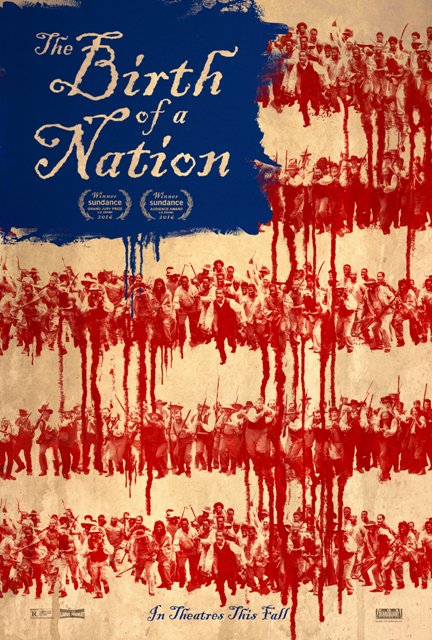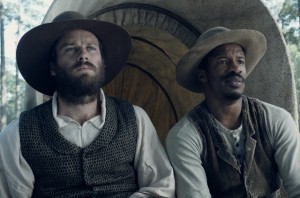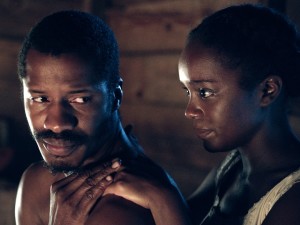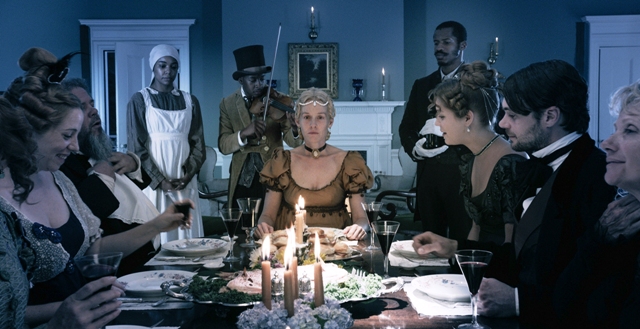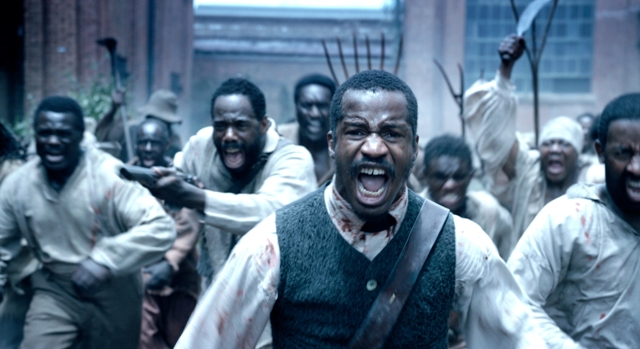Birth of a Nation movie: Freedom fighter or domestic terrorist?
By Rusty Wright
Into a nation boiling with racial conflict enters a film about an antebellum Bible-quoting Virginia slave whose revolt inspires many to counter racial oppression. Who was Nat Turner? What did he accomplish, and why should we care?
Writer, producer, director and actor Nate Parker plays Turner in The Birth of a Nation, a Sundance Film Festival favorite that Fox Searchlight Pictures bought for a record $17.5 million.
In a nutshell, nineteenth-century news reports, scholarly research, and primary documents include details like these about Turner: He felt destined for great work, saw spirits fighting in the skies, heard voices, and communicated “revelations” to fellow slaves. A solar eclipse convinced him God wanted him to slay his enemies.
One night in 1831, he and other slaves attacked and killed whites in their masters’ households, sometimes as they slept, regardless of age or gender. Weapons included axes, clubs, swords and guns. Methods included both adult and child beheadings. About 55 whites perished in 48 hours. Armed citizens confronted the attackers and dispersed them. Turner hid for two months, was captured, tried, and executed. Of course, the story is much more complex.
The film masterfully paints a vivid picture of plantation life, from slaves’ intense love for their own families and affection for kindly whites to their extreme agony over white abuse and injustice. Corresponding appreciation and revulsion alternated inside me. The killing scenes – apparently interpreted by filmmakers as holy acts with divine approval – are not for the faint of heart.
Mixed assessments
Race and slavery have been keen interests of mine for my entire professional life. For decades, I’ve lectured, written and broadcast about racism’s repugnance and slavery’s stench. I appreciate the need for stories to inspire people to counter racial oppression.
But I would be remiss if I did not note that anti-racism/anti-slavery scholars’ assessments of Turner are not universally positive. Was he a freedom fighter seeking to liberate the subjugated? A misguided terrorist who slaughtered innocents? Consider some views.
African-American Harvard professor Henry Louis Gates (serendipitously also known for “beer diplomacy“) has called Turner “legendary” and seems to speak favorably of his “heroism and sacrifices.”
Temple University scholar Molefi Kete Asante, also African American, calls Turner a “reflective and mature thinker” who “believed in liberty,” “demonstrated both gravitas and charisma,” and “has earned his place in the panoply of revolutionary icons.”
Filmmaker Nate Parker has described Turner as “a measured, self-determined man of faith, whose courage and sacrifice left him a martyr.” He labels his film “the black Braveheart.”
An abolitionist’s view
Thomas Wentworth Higginson, a Harvard-trained white Unitarian minister and social activist, wrote about Turner’s rebellion for The Atlantic magazine in 1861, thirty years after the event. Higginson had strong antislavery credentials as a prominent abolitionist whose radical abolitionist sermons cost him his first pulpit. He served as colonel in the “first authorized Union regiment composed of former slaves.”
Higginson is quick to note slavery’s injustices and atrocities, including brutalization, rape, indiscriminant retaliatory executions, beheadings and a “Reign of Terror.” But he also has strong words for Turner’s tactics of killing all whites: a “swift and irresistible…massacre,” “horror,” “agonies of terror,” and “terrible work.” He clarifies that Turner hoped his initial terror would prompt mass slaveholder surrender (thereby limiting carnage).
So, as you watch The Birth of a Nation, I encourage you – as Nate Parker does – to contemplate and discuss remedies for racial oppression. May I also encourage you to compare Nat Turner’s actions with today’s terrorism to assess the merit of his strategy?
Rape case baggage
In 1999, at age 19, Penn State student Nate Parker was charged with rape, then acquitted. In 2012, his accuser committed suicide. Recent focus on this story has caused a major flap as the film’s October 7 US opening approaches.
Birth actress Gabrielle Union, herself a rape victim, accepted the film’s role of a rape victim to facilitate speaking about sexual violence. “Since Nate Parker’s story was revealed to me, I have found myself in a state of stomach-churning confusion,” she wrote in the Los Angeles Times. “As important and ground-breaking as this film is, I cannot take these allegations lightly.” African Americans have debated boycotting the film.
Parker maintains his legal innocence, but sensitively concedes his moral culpability: “No one who calls himself a man of faith should even be in that situation. As a 36-year-old father of daughters and person of faith, I look back on that time as a teenager and can say without hesitation that I should have used more wisdom.”
“Be sure your sin will find you out,” warned the great Jewish liberator, Moses. Isaiah, another Jewish prophet, wrote, “‘Come now, let’s settle this,’ says the Lord. ‘Though your sins are like scarlet, I will make them as white as snow.'” I’m glad my own youthful flaws were candidates for forgiveness.
Rated R (USA) “for disturbing violent content, and some brief nudity.”
www.TheBirthOfANationMovie.com Opens October 7 (USA) International opening dates
Rusty Wright is an author and lecturer who has spoken on six continents. He holds Bachelor of Science (psychology) and Master of Theology degrees from Duke and Oxford universities, respectively. www.RustyWright.com
Copyright © 2016 Rusty Wright
# # #
Editors: Note pictures below. (There are five images. Scroll to bottom to view the fifth image.) For access to these images and more, check here, here, here and here.
